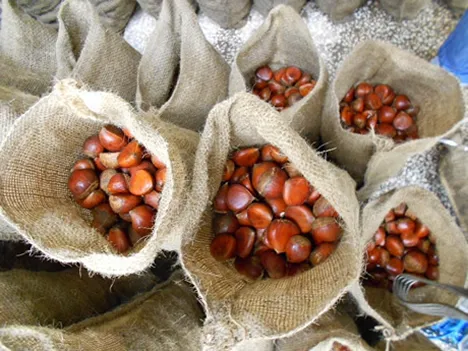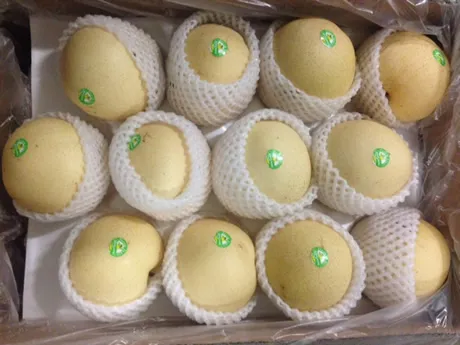Last week, 888 Fruit Company in Rungis, France, received their first new Chinese chestnuts. "We got the first container on Thursday. Despite it being unusually hot here in France, sales went quite well. Their cost price is 20% higher - not because of demand, but because of the high sea freight prices and the current dollar exchange rate," says Nico Schaft.
"These chestnut sales always depend heavily on the European crop. There are currently plenty of European chestnuts available, but the drought didn't do their quality any good. We can distinguish ourselves well with the large (AA) chestnuts from China; there aren't many of those on the market," In France, Nico sells the Chinese chestnuts mainly to market traders, but he also exports them to countries like Italy and Greece.

"Though we received the first container already, these sweet chestnuts are, above all, a truly festive holiday product. As the weather gets colder, people increasingly buy more of them. The European target group loves sweet chestnuts, but Asian consumers like buying them too. The Chinese don't roast, but boil, these chestnuts," Nico explains.
"These goods are quite pricey, but there's not much alternative. People usually buy mushrooms, but there are hardly any now, either. Many products are expensive. Imported melons now sell for €10-€12. We also offer Chinese Nashi pears and pomelos. The pomelos are much cheaper than last year when they sold for between €16 and €17. Now, it's €12 to €13."

Nashi pears
The French wholesale market, too, has to deal with increased cost prices. "Vegetables, in particular, are far more expensive. Overall, sales are down 30% this year at Rungis. As in the Netherlands, energy prices have risen sharply. That's to go up 50% from January 1. Generally, there are plenty of challenges, but we remain optimistic," Nico concludes.
For more information:
Nico Schaft
888 Fruit Company
Rungis, France
Tel: +33 (0) 145 603 640
Mob: +33 (0) 609 814 815
Email: info@888fruitcompany.com
